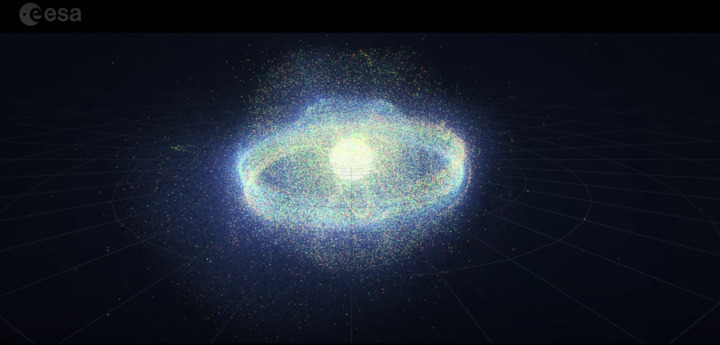The COMPASS group participated to the 8th European Conference on Space Debris organised by ESA/ESOC on 20-23 April 2021. The conference, held every four years, represents the largest gathering of researchers and professionals working on space debris related activities and topics. The COMPASS group contributed with 4 oral presentations and 3 poster presentations.
But before jumping into technical content, the European Space Agency kickstarted the conference with the premiere of “Time to Act”, an ESA movie about Space Debris. Check it out:
Prof. Camilla Colombo gave two oral presentations. The first one dealt with the mission analysis and design for an active debris removal service for large constellations within the ESA Sunrise programme. The project aims at designing an active debris removal service for large constellations, in partnership with D-Orbit S.p.A.
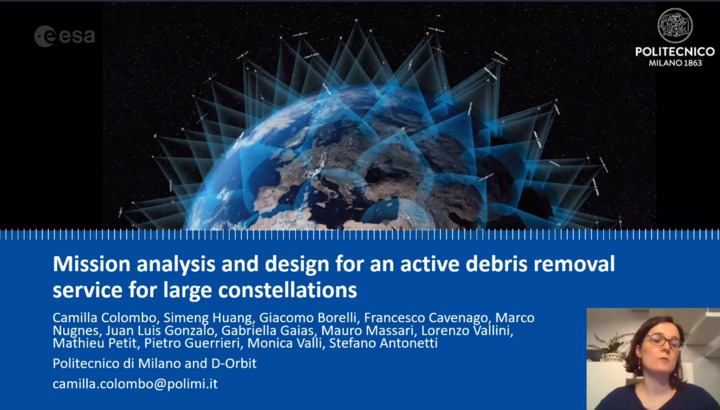
In her second presentation Prof. Colombo talked about the design of a software to assess the impact of a space mission on the space environment, performed in the context of an ESA-funded study. The software will be developed in collaboration with Vyoma and Deimos Space, and evaluates the impact of a specific mission to the overall space capacity.
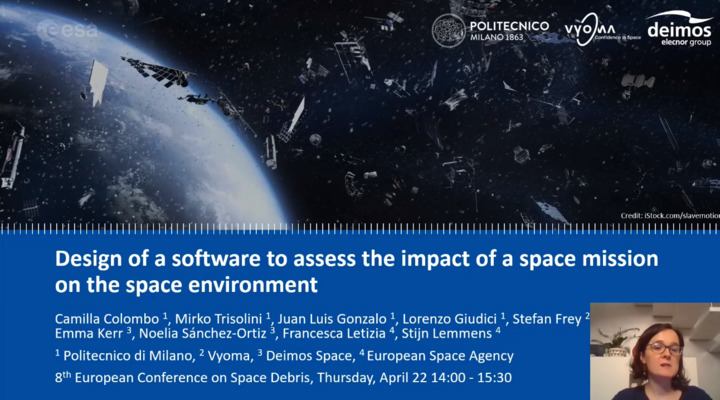
Additionally, she presented a poster about the e.Cube mission. The e.Cube, or environmental CubeSat, mission, designed in the COMPASS group, will contribute to the advancement of technologies and methodologies for space debris mitigation and remediation. More info in the dedicated page (https://www.compass.polimi.it/research/ecube-mission/) on this website.
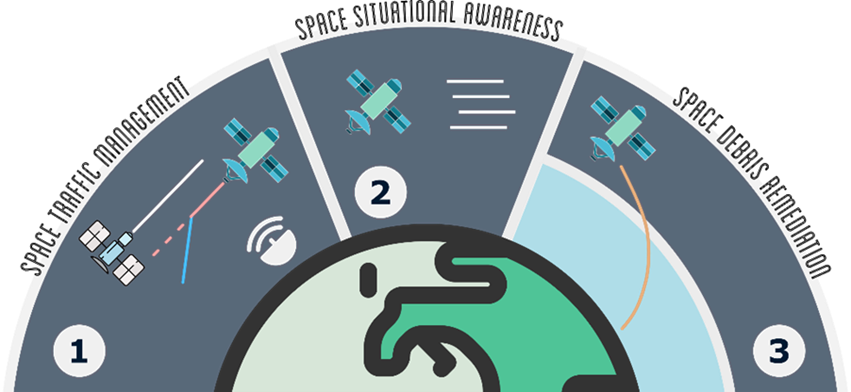
Dr. Mirko Trisolini held an oral presentation about his latest developments on the study of re-entry and break up of objects. In the study, the effect of uncertainties in the re-entry and break-up of satellites is combined with the destructive re-entry analysis of object-oriented codes. The approach used to model the re-entry and propagate the relevant uncertainties is based on the continuity equation, where the uncertainty probability density is propagated alongside the trajectory to predict its evolution in time.
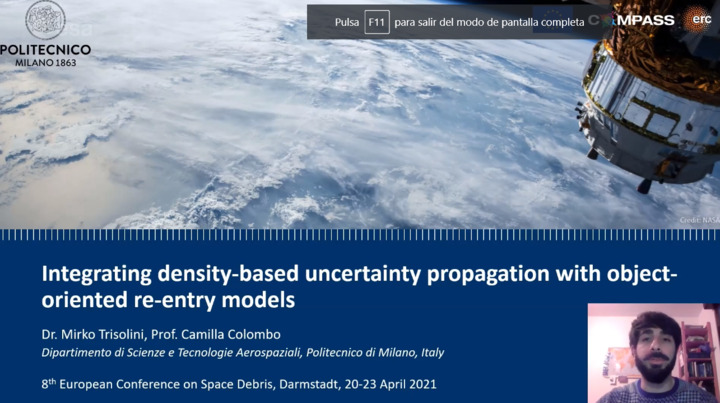
Dr. Juan Luis Gonzalo delivered an oral presentation about the synergies between collision avoidance activities and machine learning methods. COMPASS researchers have recently introduced the Manoeuvre Intelligence for Space Safety (MISS) software tool. In this paper, the synergies of MISS with machine learning techniques for the design of autonomous on-board collision avoidance algorithms is explored.
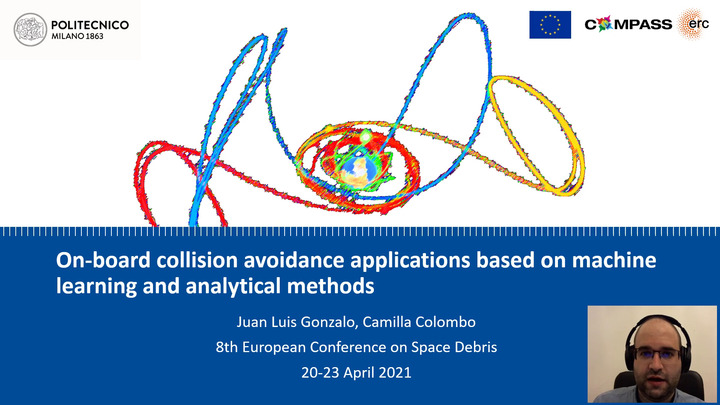
Dr. Matteo Romano presented a poster featuring the PUZZLE software, for the characterisation of in-orbit fragmentations. The tool identifies which objects have been generated via a collision or explosion and characterises the catastrophic event in terms of mass and energy. The software was developed within the COMPASS group under a contract with the Italian Space Agency as part of a more general software for the support of Space Surveillance and Tracking (SST) services and the study of space debris.

Last but not least, Giacomo Borelli presented his poster on the development of a ranking framework to select candidates for Active Debris Removal (ADR) missions. This work analyses the debris population from different perspectives and areas of impact for future ADR missions or services: namely, the environmental, economic, operational and mission related impacts.
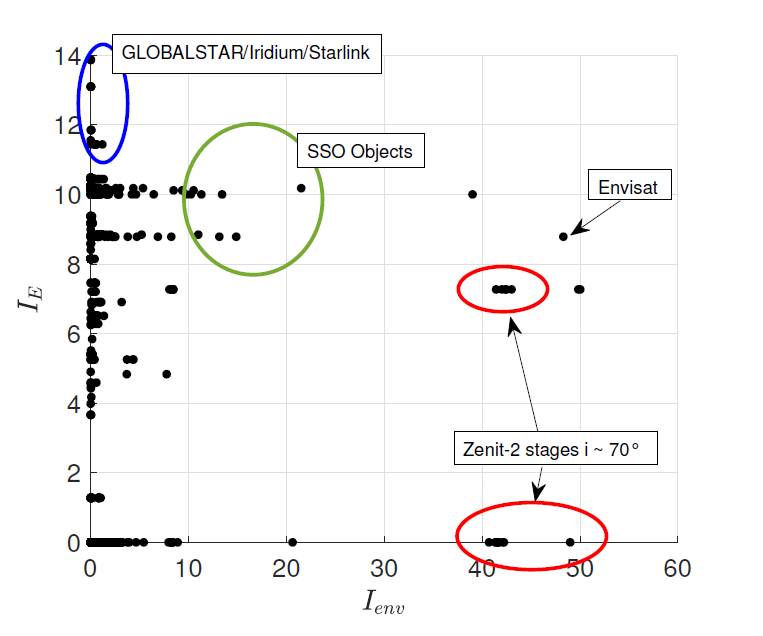
We want to thank the organizers for a very engaging and interesting conference, and hope to see you all in person at the next edition!

